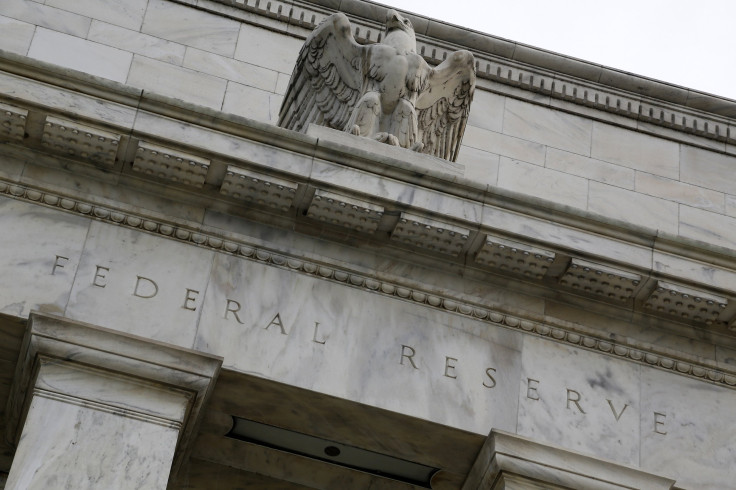Fed Looks Past A World In Turmoil, Confident In US Recovery

(Reuters) - U.S. central bankers have looked beyond a global deflation threat, fear of energy-sector bond defaults, and a surge of oil patch layoffs to reach what appears to be a firm conclusion: the U.S. recovery is here to stay.
New trade data released on Wednesday and signs of ever-stronger consumer spending confirmed the United States remains the bright spot in a global economy plagued by uncertainty.
The trade deficit shrank in November to less than $40 billion, providing a boost to growth as Americans spent less on imported oil.
Meanwhile, the first corporate reports from the Christmas season showed at least some of that money trickling into stores as J.C. Penney Co Inc. said same-store sales rose 3.7 percent in November and December, pushing the company's stock up nearly 20 percent.
At its December policy-setting meeting, according to minutes released on Wednesday, the Federal Reserve took close stock of plunging world oil prices and turmoil in Europe and decided that those negative trends would not undo that underlying strength.
"Several participants ... suggested that the real economy may end up showing more momentum than anticipated, while a few others thought that the boost to domestic spending coming from lower energy prices could turn out to be quite large."
The minutes set the stage for what could be a key economic theme this year: how the global system will react as Fed policy diverges from that of other major central banks.
The European Central Bank and the Bank of Japan are expected to further loosen monetary conditions in coming weeks or months, while the luster has fallen from emerging markets that had been attracting record levels of investment in recent years.
"These minutes defined the environment post-tapering," said Robert Tipp, chief investment strategist at Prudential Fixed Income in New Jersey. "If the Fed moves aggressively it would suck up capital from emerging markets."
Global conditions have arguably weakened since the Fed's Dec. 16-17 meeting, and the minutes note that the United States would not be immune if the world economy turns sharply down.
There is already fallout. Credit analysts have honed in on the debts of companies involved in oil and gas exploration and production, with Standard & Poor's downgrading half a dozen firms at the end of 2014 and concluding the entire sector will be under pressure if prices remain so low.
Workers have taken a hit not just directly among energy firms but in affiliated industries. U.S. Steel announced this week it was laying off 756 workers due to weakening demand for steel pipe and other products used by energy firms.
But the positive impulse from cheap oil is only beginning, according to analysts, and is expected to keep the Fed firmly on track even if it pushes inflation further from the central bank's target in coming months.
The narrowing trade deficit prompted analysts to up their estimates for 2014 economic growth.
The fall in oil prices also was putting hundreds of billions of dollars in the pockets of consumers, a trend that started to show up in earnest in November's retails sales. The December numbers are expected to be strong as well, with the National Retail Federation forecasting 4.1 percent overall growth over the year before.
FALLING YIELDS
Even the steady drop in U.S. bond yields says less about expectations for future interest rates than it does about the oil-driven path of inflation and its longer-term impact on the economy, Cornerstone Macro economist Roberto Perli said in a recent analysis.
Bond yields were dropping, he said, in part because the amount investors demanded to offset inflation was falling faster even as expectations for economic growth continued to increase.
"Investors might be tempted to assume that the bond market is sending a very bearish message about the U.S. economy, but in reality the bond market is saying exactly the opposite," Perli wrote.
"Growth expectations embedded in the 10-year yield have actually improved this month, and have been doing so ever since oil prices started to drop in the summer. The bond market shares our view that the drop in oil prices is a good thing for the aggregate U.S. economy."
© Copyright IBTimes 2024. All rights reserved.




















